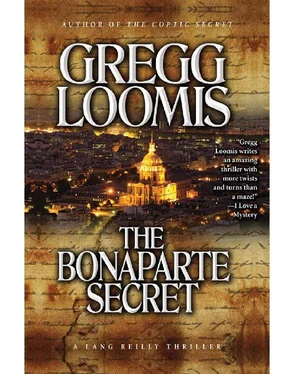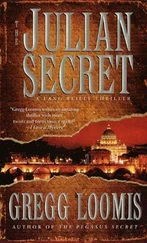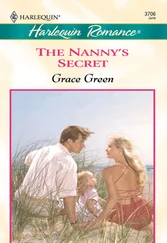Gregg Loomis - The Bonaparte Secret
Здесь есть возможность читать онлайн «Gregg Loomis - The Bonaparte Secret» весь текст электронной книги совершенно бесплатно (целиком полную версию без сокращений). В некоторых случаях можно слушать аудио, скачать через торрент в формате fb2 и присутствует краткое содержание. Жанр: Триллер, на английском языке. Описание произведения, (предисловие) а так же отзывы посетителей доступны на портале библиотеки ЛибКат.
- Название:The Bonaparte Secret
- Автор:
- Жанр:
- Год:неизвестен
- ISBN:нет данных
- Рейтинг книги:3 / 5. Голосов: 1
-
Избранное:Добавить в избранное
- Отзывы:
-
Ваша оценка:
- 60
- 1
- 2
- 3
- 4
- 5
The Bonaparte Secret: краткое содержание, описание и аннотация
Предлагаем к чтению аннотацию, описание, краткое содержание или предисловие (зависит от того, что написал сам автор книги «The Bonaparte Secret»). Если вы не нашли необходимую информацию о книге — напишите в комментариях, мы постараемся отыскать её.
The Bonaparte Secret — читать онлайн бесплатно полную книгу (весь текст) целиком
Ниже представлен текст книги, разбитый по страницам. Система сохранения места последней прочитанной страницы, позволяет с удобством читать онлайн бесплатно книгу «The Bonaparte Secret», без необходимости каждый раз заново искать на чём Вы остановились. Поставьте закладку, и сможете в любой момент перейти на страницу, на которой закончили чтение.
Интервал:
Закладка:
He left the room without another word. The guard gave Diem a blank stare and followed. The Chinese diplomat sat for a full minute, sorting through the most unusual negotiations in which he had ever participated before getting up and heading for the waiting Mercedes.
Venice
18:20, February, the present year
Lang Reilly was not fond of Venice. The city was like a movie star long past her prime. Faded stucco peeled from stone walls like a woman unable to replace her makeup. The acqua alta, high water from the Adriatic, relentlessly flooded most of the city in its persistent effort to reclaim what had been taken from the sea.
It was a city of tourists, twenty-one million in 2007, as opposed to only sixty thousand residents remaining of the one hundred twenty thousand of twenty years ago. Many of the historic palazzos were now hotels, an increase in visitor accommodations of 600 percent in the last ten years. Claustrophobic byways, more alleys than streets, were far too tight for conventional vehicular traffic even if the city allowed it. They were so narrow they remained in shadow even during the day, perfect places for muggers or worse. Indeed, the city boasted a Street of the Assassins, reflecting a cottage industry of the city’s past. Many of the street signs, where there were any, were in the Venetian dialect, rendering a map useless. The numerous canals caused perpetual dampness and musty smells, adding to the reasons he and Gurt had chosen a hotel on the powdery sands of the Lido, a strip of beach-front a five-minute boat ride across the lagoon that it separated from the Gulf of Venice.
The hotel’s boat, resembling a perfectly restored Chris-Craft from the 1950s, complete with teak decking, wallowed in its own wake as the driver reversed, then cut the twin engines a few feet from what would have been steps up to the Molo San Marco had they not been under water. As it was, the craft’s passengers had to balance their way on a makeshift gangplank.
From dockside, Lang could see the winter rain was adding to the flooding of the Piazza San Marco, already several inches under water from the seasonal high tides. A clumsily raised platform, specially erected for Carnevale to host musicians, acrobats and other entertainers, was draped with a sagging banner proclaiming Coca-Cola the “cocktail ufficiale di Carnevale.” The banner across the Campanile also demonstrated commercialism was a prime theme of the festivities by advertising a popular Scotch whiskey. A network of raised boards gave access to the glass shops and restaurants lining the square. The emptiness of the tables and chairs outside the latter added a deserted moroseness where laughter and music belonged.
The somberness seemed to have spread even to the square’s famous pigeons, whom tourists delighted in feeding. Instead of gathering around and on anyone crossing the square, their mournful cooing from under the eaves of buildings only added to the gloomy scene.
The weather had done little to dampen the early-evening enthusiasm of the revelers of Venice’s famous twelve-day Carnevale, however. Elaborate costumes were everywhere, most rented with deposits in excess of ten thousand euro in case of a drunken dip in a canal or other disaster. Partygoers flocked through and across the square. All seemed oblivious to the drizzle that, under the streetlights, wrapped the city in a glowing gauze of moisture. The impression was of an anthill just kicked over, its inhabitants scurrying in all directions to balls where the admission price could exceed eight hundred euro. Lang wondered if the celebrants were aware that the hook-nosed masks so popular here mimicked the masks worn centuries ago by those charged with burying those dead of the plague.
“You do not seem happy.” Gurt, in the costume of a seventeenth-century lady, was walking beside him as they dodged a puddle and turned right.
They were following what resembled a fretwork of loggias and arcades below a pink Veronese marble building of vaguely Gothic style.
“I’m smiling aren’t I?”
“Your smile is painted on your face along with the red rubber nose.”
“The clown outfit was your idea.”
Before the conversation could continue, they arrived at the back of a line of elegantly costumed men and women closely huddled under an awning, which ended at a pair of massive wooden doors, the Porta della Carta, the original main entrance to the Palazzo Ducale, the Doge’s Palace.
“You did remember the tickets?” Gurt asked.
Lang fumbled in a pocket of his piebald outfit. “If the rain hasn’t melted them.”
“I would hate to have come this distance and not get in.”
“For what the foundation contributes to Save Venice every year, we could buy the place.”
Only a slight exaggeration. The international charity, Save Venice, Inc., contributed millions each year to preserve and protect the city and its art and architectural treasures from being reclaimed by the Adriatic. The Italian government had spent even more on plans for a tidal gate, which had become a political football that no one thought would ever see more than lip service, inflated contracts and political patronage. In return for its efforts, the charity was permitted to hold an annual masquerade ball in the Sala del Maggior Consiglio, the huge third-floor council room from which the independent city-state had managed an empire that embraced northeastern Italy, the Ionian Islands and a good part of the Adriatic’s east coast.
Although not a fan of Venice, Lang realized its historical value. As CEO of the Janet and Jeff Holt Foundation, he honored his sister’s memory with generosity to her favorite city. She and her adopted son, Lang’s best ten-year-old pal, had died several years ago in a fire caused by one of the world’s wealthiest and least known organizations. It was Lang’s threat of exposure that had forced the very same group to fund the foundation that bore his sister’s name.
He frowned, wishing it were Janet, rather than he, who had been coerced into standing in the cold dampness, waiting to arrive at a ball he didn’t really want to attend. The fact he had only himself to blame did little to improve his mood. Like an idiot, he had mentioned the invitation to Gurt, who had made it quite clear she was going with or without him.
Inside, a canopy protected partygoers as they crossed a small piazza and climbed the Giants’ Staircase, carved from marble in the fifteenth century and crowned with statues of Mars and Neptune, symbolic of the city’s power on land and sea. At the top, an usher clad in seventeenth-century knee britches, complete with shoes with shiny silver buckles, directed them toward the sound of music. To Lang, it sounded like a replay of, perhaps, “String of Pearls” or “Pennsylvania 6 5000.” It was certain the band was unaccustomed to the swing music of the thirties and forties.
Gurt took his arm. “It is Glenn Miller, no?”
“About the right band for this group,” Lang muttered, an allusion to the fact the foundation’s membership was largely elderly. Young people had better things to spend money on.
“You grousing again, Reilly?”
Lang turned to see a white-haired, elfin man attired in hip-high leather boots, balloon sleeves and a cap with a feather. A sword hung at his side. Gorin, Gowen, something like that. The man spoke with the genteel twang of the American Northeast. He came from a family of such wealth that no one was quite sure where it all had come from to begin with. He had dabbled in politics, actually getting appointed to some cabinet post Lang had forgotten along with whoever had appointed him. Lang had served on the board of several charitable organizations with him.
What the hell is his name?
More interesting was the woman whose hand he held. She was young enough to be, but certainly was not, the man’s granddaughter. Lang suspected the diamond necklace draped across inviting decolletage was not costume jewelry, either.
Читать дальшеИнтервал:
Закладка:
Похожие книги на «The Bonaparte Secret»
Представляем Вашему вниманию похожие книги на «The Bonaparte Secret» списком для выбора. Мы отобрали схожую по названию и смыслу литературу в надежде предоставить читателям больше вариантов отыскать новые, интересные, ещё непрочитанные произведения.
Обсуждение, отзывы о книге «The Bonaparte Secret» и просто собственные мнения читателей. Оставьте ваши комментарии, напишите, что Вы думаете о произведении, его смысле или главных героях. Укажите что конкретно понравилось, а что нет, и почему Вы так считаете.












